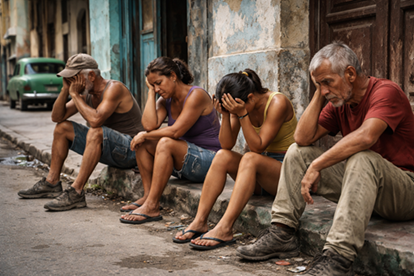
A raging debate has erupted as to whether Jamaica is a laggard Caribbean state in the race to get its people vaccinated against Covid19. The protagonist debaters point out that Barbados, The Commonwealth of Dominica, Antigua & Barbuda, Grenada, St Lucia and others have all started to dispense the Covid19 vaccine whilst a shipment has not yet reached the exposed shores of Jamaica. The respondent debaters argue that Jamaica had to await the approval of the Astra-Zeneca vaccine by the World Health Organisation (WHO); that it is awaiting its shipments under the WHO Covax programme; that it will not be careless with its people’s health and that money is not an issue.
I will never be so unkind, intemperate, undiplomatic or rude to state by innuendo that my Caribbean cousins and in particular my Bajan relatives have been careless with the health of their people by allowing their citizens to be vaccinated by (at the time) a WHO unapproved vaccine. Certainly not after their own sovereign Ministries of Health had approved these vaccines!
There is a bigger picture. It is that of sovereignty and the power of a sovereign country to make and obey its own laws.
In Joosse v Australian Securities and Investment Commission [1998]159 ALR, the high Court of Australia had this to say:
“Sovereignty” is a concept that legal scholars have spent much time examining. It is a word that is sometimes used to refer to very different legal concepts and for that reason alone, care must be taken to identify how it is being used. H L A Hart said of the idea of sovereignty that:
“It is worth observing that an uncritical use of the idea of sovereignty has spread similar confusion in the theory both of municipal and international law and demands in both a similar corrective. Under its influence, we are led to believe that there must in every municipal legal system be a sovereign legislator subject to no legal limitations; just as we are led to believe that international law must be of a certain character because states are sovereign, and incapable of legal limitation save by themselves. In both cases, belief in the necessary existence of the legally unlimited sovereign prejudges a question which we can only answer when we examine the actual rules. The question for municipal law is: what is the extent of the supreme legislative authority recognised in this system? For international law it is: what is the maximum area of autonomy which the rules allow to states?”
For present purposes, what is critical is: what is the extent of the supreme legislative authority recognised in this system and what are the rules for recognising what are its valid laws?
Jamaica has a Food and Drug Act as well as Food and Drug Regulations made in 1975. These are its sovereign laws.
On 24 February 2021 the website of the Ministry of Health & Wellness (MOHW) contained the following:
“Registration of Drugs and other Items
Registration of drugs and other products/items are major regulatory functions executed through the Pharmaceutical & Regulatory Affairs Department. It involves in-depth scientific evaluation of the technical documentation submitted in support of registration resulting in licensing of a drug or other related product. It is one of the primary mechanisms through which the quality, safety and efficacy of drugs, and other products mentioned in the Food and Drugs Act and Regulations are ensured.
‘Drug’ refers to any substance that conforms to the definition prescribed by the Act. Such substances generally require registration and include drugs, herbal preparations and some vitamins and supplements. Registration may also be required for any cosmetic, food or device making therapeutic claims.
In instances where products are deemed safe enough to be placed on the market without formal registration, the Ministry of Health grants a written approval. Once registered or approved, products are allowed importation by way of permits granted by the department on the Ministry’s behalf.”
This is supposedly a function of the Ministry, yet on the issue of Covid19 vaccine approvals the MOHW has unconditionally surrendered its lawful power and authority under the Food and Drug Act and Regulations to the WHO.
As far as I am aware, Jamaica has no Treaty obligations to yield to or genuflect to the WHO on the matter of the approval of drugs.
The Minister of Health has repeatedly stated that Jamaica will not approve Covid19 vaccines that are not approved by WHO. The governments of both the United Kingdom and the United States of America both gave emergency approval to the Pfizer and AstraZeneca Covid19 vaccines well before WHO finally got around to approving them.
It has long been the law that a decision -making body such as the MOHW cannot fetter its statutory discretion by the adoption of some contrived policy. To do so is to offend the grounds of legality and procedural propriety.
The decision of MOHW, by way of some contrived policy, to essentially yield its discretion under the laws of Jamaica is the wrongful exercise of a discretion and is subject to being overturned by a Court. Those who have suffered by way of the delayed approval of the Astra-Zeneca vaccine may wish to consider their options.
Sovereignty must mean something. The laws of Jamaica must mean something. Law and policy, however well intentioned, are two different things. The law is in fact a shackle!
Jamaica is a very difficult country in which to obtain what ought to be public information. Transparency in public affairs doesn’t really exist. Could someone please advise as to the names of the local representatives for Pfizer, AstraZeneca and Moderna?



